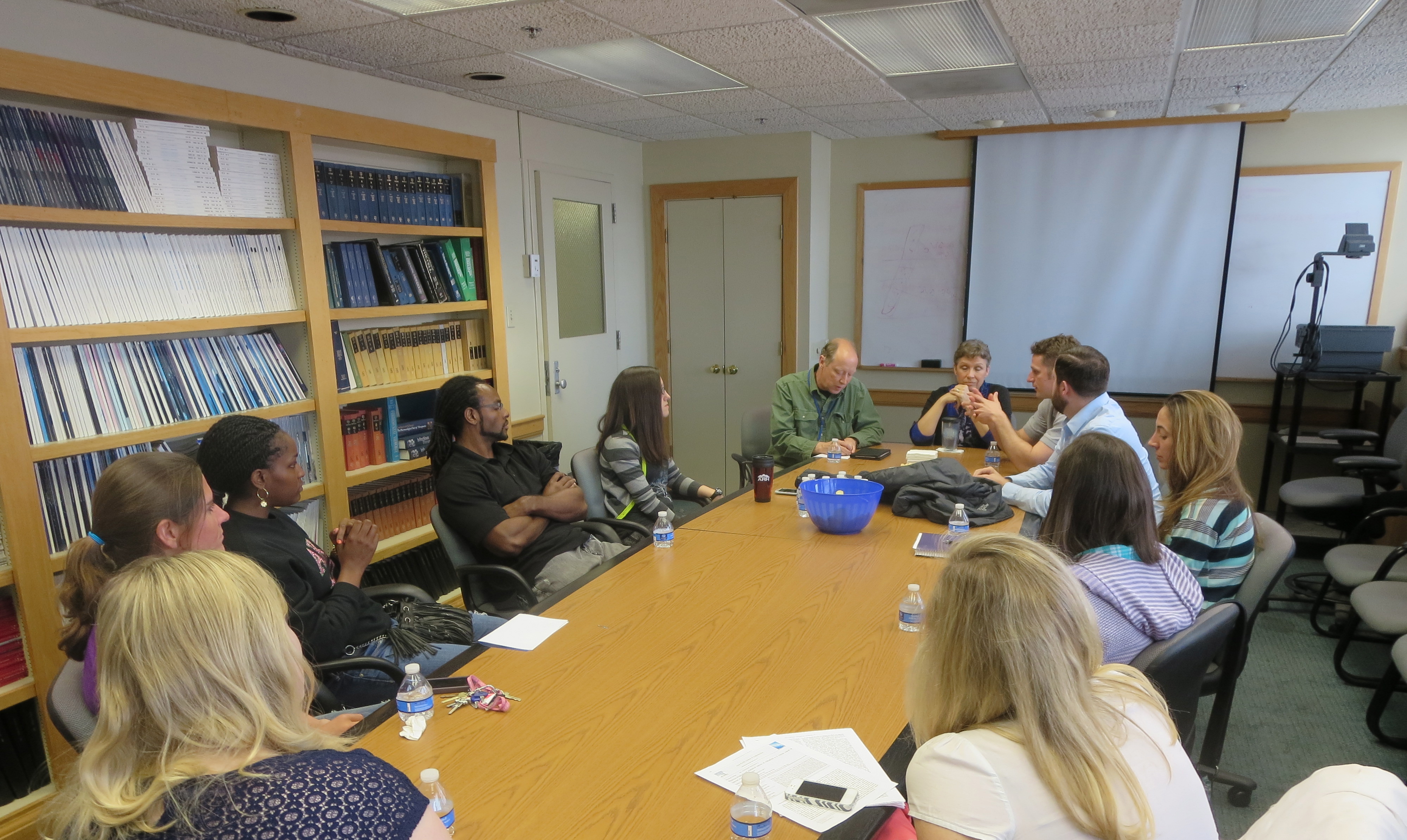Bridge to Doctorate Program Removes Barriers for Underrepresented Students in Biomedical Sciences
Growing up in the small rural town of Paintsville, Kentucky, Hilaree Frazier always loved science. She remembers that from a young age she was interested in pursing a PhD in science, but when she finished her bachelors of science at Eastern Kentucky University (EKU), she was intimidated by the prospect of going straight into a doctoral program. Even though she was interested in UK's Integrated Biomedical Sciences PhD program, she didn't apply.
"I think I just didn't have enough confidence," she said. "There weren't a lot of opportunities in science in my hometown."
Her undergraduate advisor at EKU suggested that she apply to a program a called the Kentucky Bridge to a Biomedical Doctorate for Appalachian Students. Funded by the National Institutes of Health and administered jointly by Eastern Kentucky University and the University of Kentucky, the program aims to increase participation of underrepresented students in science disciplines by removing "students' hesitancy about entering graduate school and the concurrent fear of creating additional financial indebtedness."
To achieve this objective, the program provides funding for two years of master's level study at EKU for up to five students each year, as well a yearly stipend as a graduate assistant, full-time summer research, and travel funds to attend and present at national conferences. One of only 13 Bridge to Doctorate programs in the county, the EKU-UK program is targeted towards students from Appalachia, but students from other underrepresented populations are also eligible.
Frazier was accepted into the Bridge program and two years later she is now finishing her master's thesis at EKU, where she has been studying virulence factors related to acute infections. And in Fall 2014, she will enter UK's PhD program in Integrated Biomedical Sciences (IBS), confident in her abilities as a biomedical researcher.
"I don’t regret not applying to a PhD program after undergrad because I wouldn't have been as prepared as I am now," she said,
Dr. Brett Spear, director of the IBS program at UK and principle investigator of the Bridge to Doctorate program, says that in the field of biomedical science, students from underrepresented populations who transition from a four-year bachelors degree program directly into a PhD program experience high dropout rates. The Bridge to Doctorate program, he says, addresses this by providing the educational and financial support to help students successfully transition to and complete a PhD program. And, like Frazier, he knows that student confidence is a key factor.
"It's not ability that's holding these kids back -- it's a lack of confidence," he said. "And as we've talked to the students to ask what about has been best about this program, they say that it builds their confidence."
The EKU-UK Bridge to Doctorate program is now in its second of five years, and six students have participated so far. In addition to funding and mentorship for their master's program at EKU, students in the program also benefit from the proximity to UK by taking a first-year PhD course in UK's IBS program.
"The students who have taken the course have all passed it, and they say that being able to take a PhD course and see that they can perform at that level has given them the most confidence," he said.
Frazier agrees, saying that participating in the PhD course at UK while still in her master's program at EKU was one of the most helpful components of the program. She also acknowledges that the Bridge program has allowed her to develop critical professional skills in addition to her academic and research training.
"Coming up to UK and attending conferences forces you to meet a lot of people," she said. "This program doesn't just support you academically but also professionally."
To further bolster the Bridge program, Spear has developed an additional mentorship component, pairing each Bridge student at EKU with both a PhD student and a faculty member at UK.
"We're developing some stronger mentoring programs so the students have people they can talk to and help them develop their confidence and really understand what they're getting into," said Spear. "The nice thing about this is that everyone wins - it helps the PhD students and the Bridge students."
He is also working to facilitate additional opportunities for Bridge students to participate in research activities at UK, including participating in research days and attending seminars.
"I think we have to be intentional to help students who need it," said Spear.
For more information about the EKU-UK Bridge program, please visit http://www.bridgescholar.eku.edu/.
MEDIA CONTACT: Mallory Powell, Mallory.powell@uky.edu
